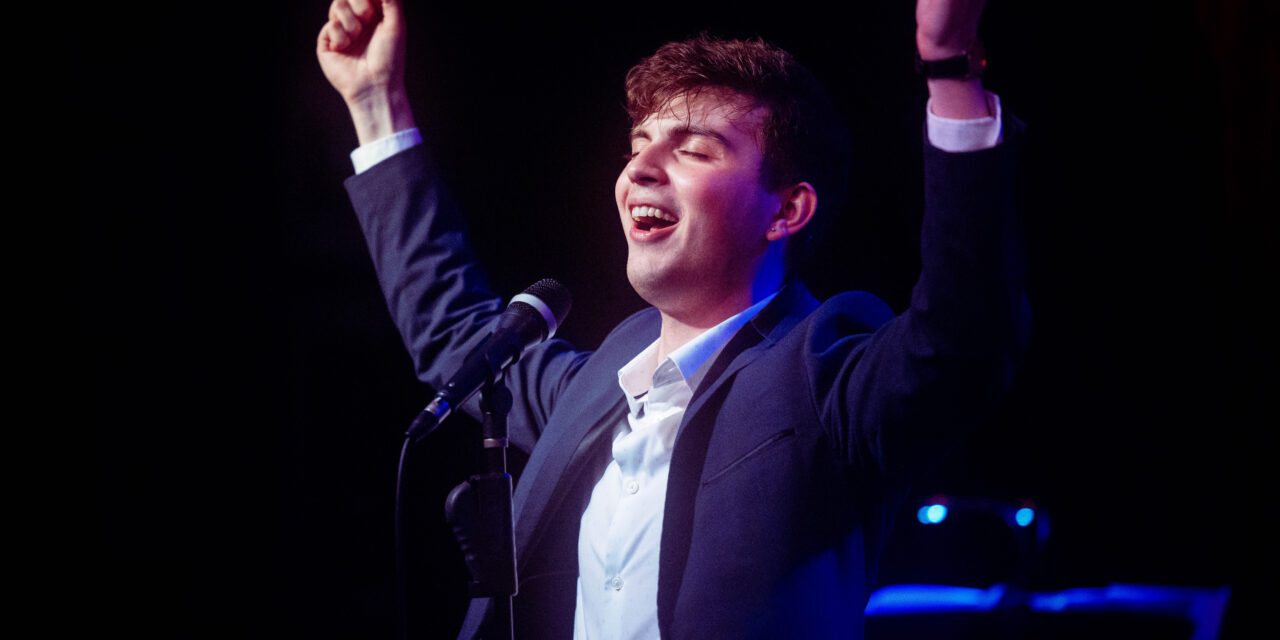Cabaret review by Andrew Poretz . . . .
When last we saw young French Canadian crooner David Marino, in July 2023, he was making his New York cabaret debut downtown (read HERE). He was quite good then, and has already grown in leaps and bounds, as evidenced by his auspicious Birdland Jazz review last weekend, in front of a sold-out crowd.
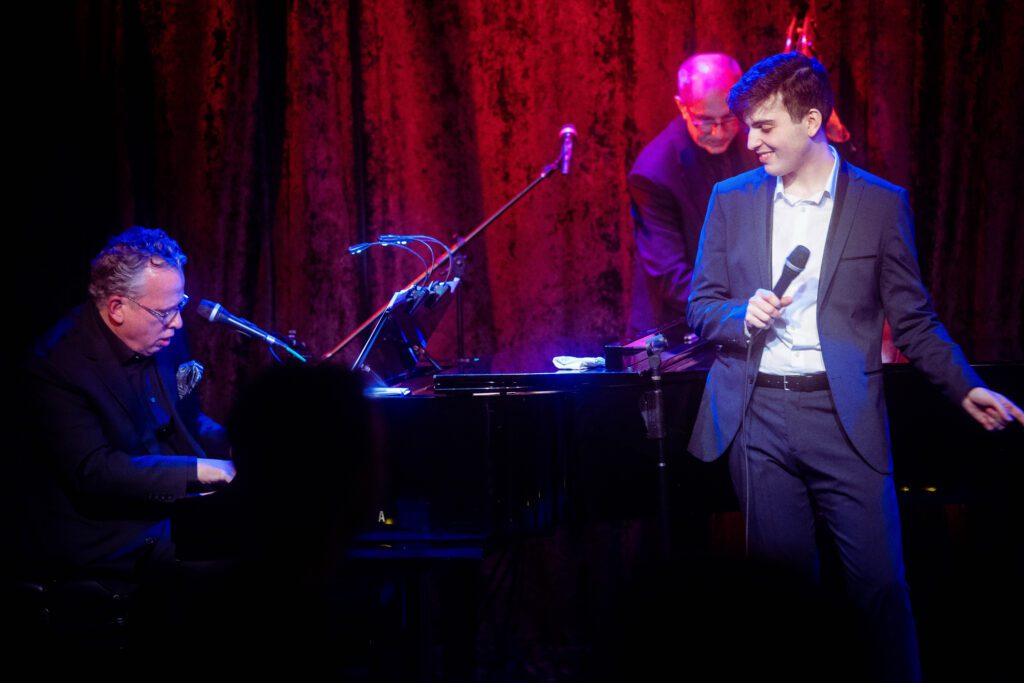
David’s stage presence and confidence is through the roof, yet he is disarmingly charming and displays vulnerability. David has developed total command over his formidable instrument. His spectacular voice has power, range, and versatility. David can swing and scat like Mel Tormé. His softer passages, in head voice, are like a young Sinatra’s, with a nearly angelic air to them. He can even sing arias well enough to perform at the Met.
Also notable is David’s crisp enunciation, which allows listeners to easily discern every word and syllable. French is his first language, and he’s worked hard to become so proficient in English that he now speaks and sings accent-free. Ah, you ask, what about David’s interpretive skills, or his ability to emotionally touch, move and inspire? Read on.
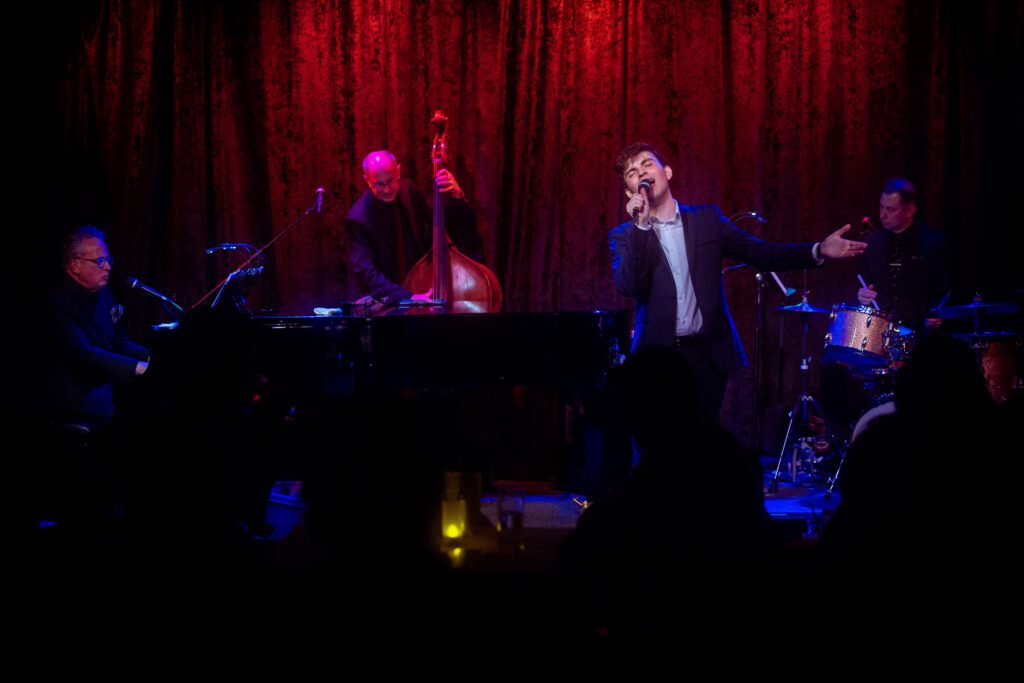

David was backed by pianist and music director Billy Stritch, bassist Tom Hubbard, and drummer Daniel Glass. The young star opened with the interesting choice of “Sweet Gingerbread” (Michel Legrand/Alan and Marilyn Bergman), a hit for Sammy Davis, Jr. in 1972. David’s take on the peppy arrangement evoked a young John Davidson more than Sammy.
David set up “Amour ou songe?” (Pierre Lapointe) with the story of a young man who fell in love for the first time and questioned whether it’s love or a dream. The French lyrics added an especially romantic feel. Towards the end, in a rangy passage, his voice soared with passion, with a thrilling sound out of an operatic French aria.
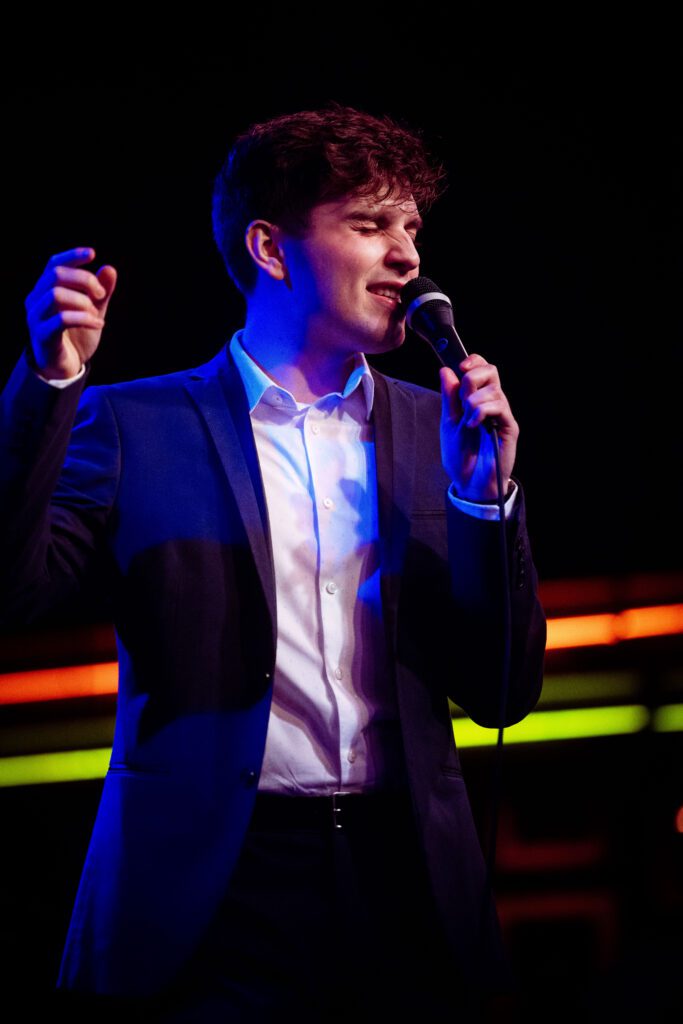

David nailed a comedy song, the century-old “Her Mother Came, Too” (Ivor Novello/Dion Titheradge). By singing very funny lyrics sweetly, with sincerity and sensitivity, with his beautiful voice, he worked his way towards the brilliant musical payoff, after the mother has fainted: “But her mother came to.”
The French rhythm number “Quand ça balance” (Michel Legrand) featured bassist Tom Hubbard, as David scatted in French.
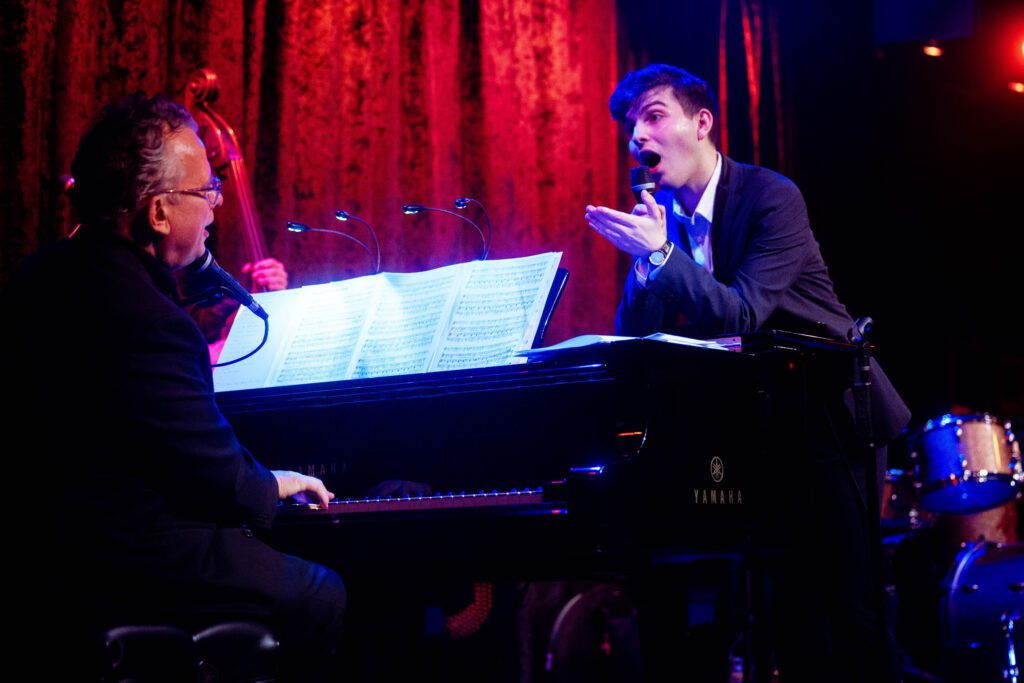

David wisely utilized Billy Stritch’s superb singing ability in a marvelous duet on Irving Berlin’s beloved counterpoint song, “(I Wonder Why) You’re Just in Love,” made famous by Ethel Merman in Call Me Madam. This show highlight, with a funny, intentionally overacted rubato section, was one of the best renditions I’ve heard.
David has certainly listened to much Sinatra. Two songs in the set, “I Won’t Dance” and “Blame it On My Youth,” borrow to some degree from Nelson Riddle’s arrangements for Sinatra. Singing the verse rubato, he has that lilt of the great singers of the 1940s and 1950s.


Not all of the material dated back to Tin Pan Alley days, with a few relatively newer songs like Paul McCartney’s “Baby I’m Amazed” and Sondheim’s “Take Me To the World.” On the latter, David sang powerfully and exquisitely, ending in a stunning, delicate finale.
Though David seemed to summon “the spirit of Mel Tormé” on an fabulous mashup of Irving Berlin’s “Steppin’ Out With My Baby” and “Let Yourself Go,” this pairing apparently derives from a Patti LuPone arrangement.
With a music box intro, David sang the lovely waltz “Charade” (Henry Mancini/Johnny Mercer). His voice here had a gentle, airy sweetness that was intoxicating.
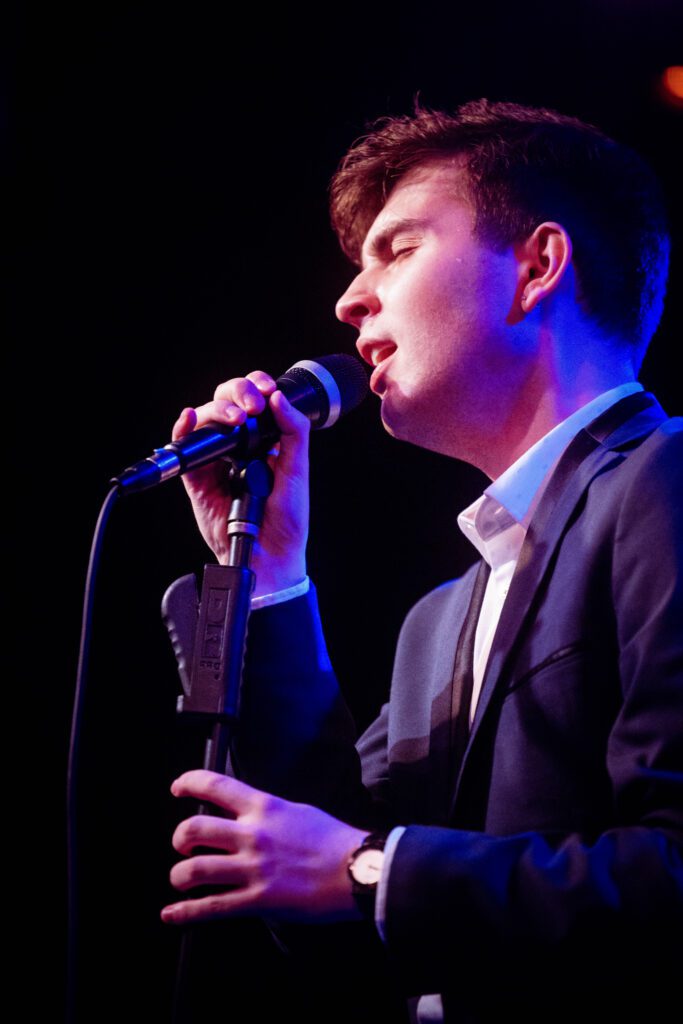

The show’s biggest highlight was “Caruso,” his grandfather’s favorite song, a staple of his shows. The Italian lyrics tell the story of a man, on his deathbed, telling his wife of the love he has for her. David takes the listener to a very deep emotional space. Despite my not knowing a word of Italian, David’s stunning performance induced tears in this reviewer along with everyone within earshot. This ability to transcend language is the mark of a master, someone who can reach the heart in a way few singers can.
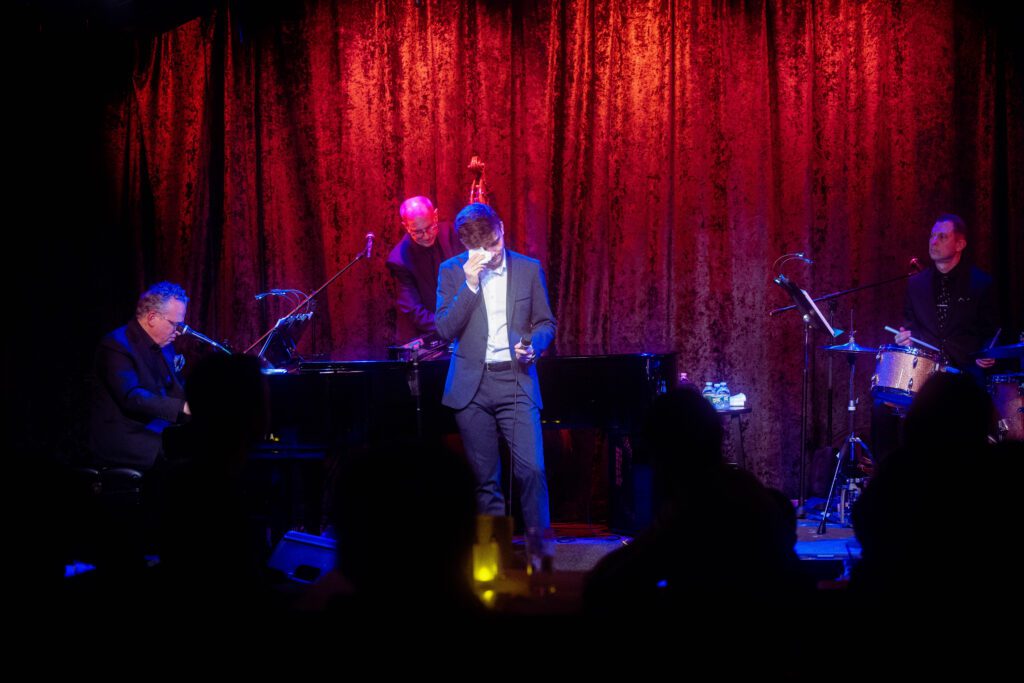

David then cried himself when acknowledging his supportive parents, who were present, and particularly his father, for introducing him to the songs he sings today. Taking a sip of Poland Spring water, he quipped, “Thank God for Poland.” Continuing with the first standard his father introduced him to, David surprised with the extremely rare verse of “They Can’t Take That Away From Me” (George Gershwin/Ira Gershwin). He performed it as a slow, bluesy jazz number with a ballsy big finish and modulation, and capped it by declaring, “I love you, Dad.”
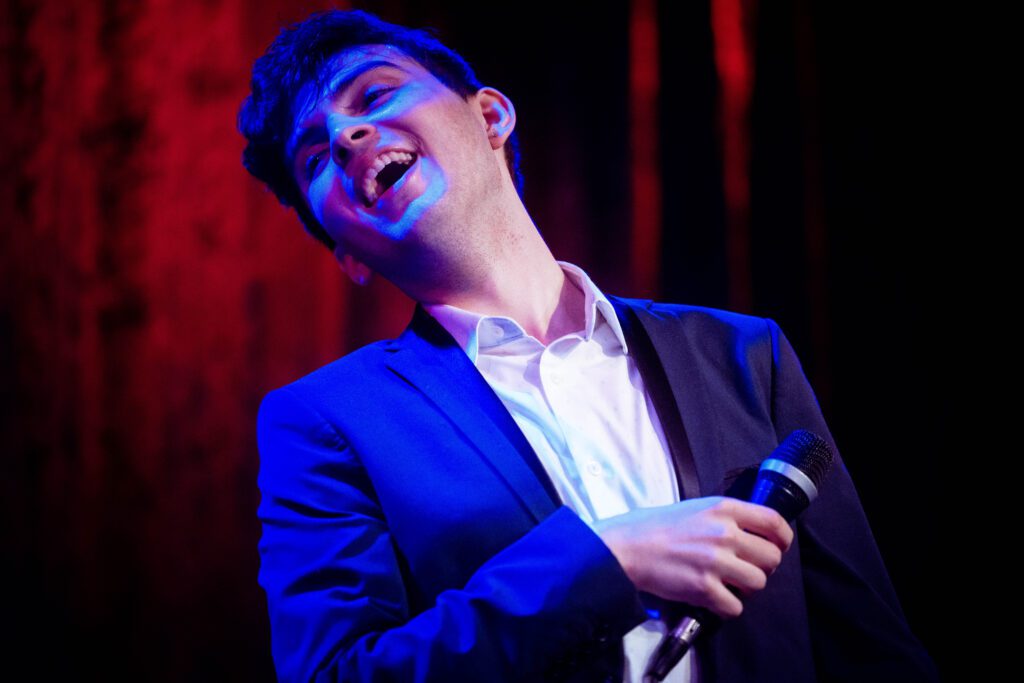

David Marino is destined for greatness. He’s young, and as Billy Stritch said after the show, he’s only going to get better as he matures, adds new colors, and further develops his emotional connection to the material and the audience. Still, this terrific entertainer already brings far more than one could want or expect at this stage of his career.
David Marino appeared on March 4 at Birdland Jazz, 315 West 44th Street, between Eighth and Ninth Avenues (www.birdlandjazz.com).
Photos: Matt Baker


